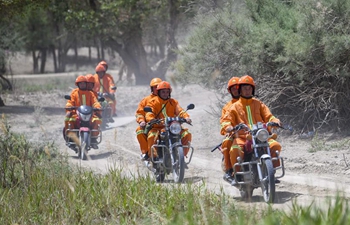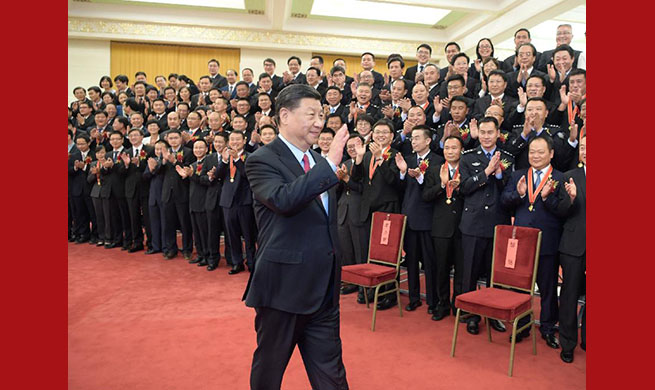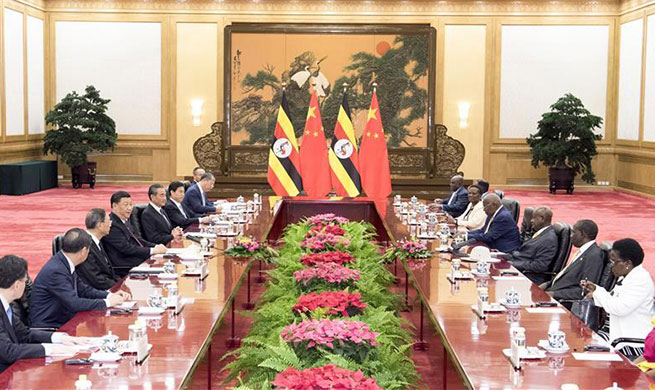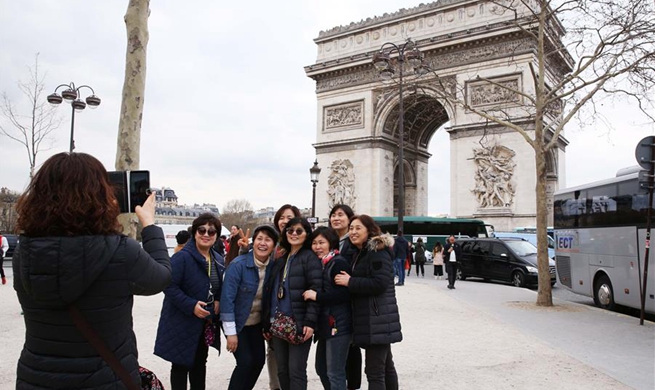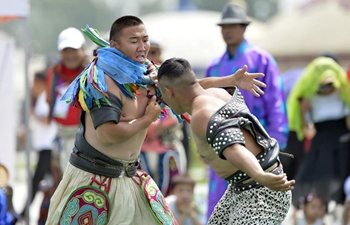CHONGQING, June 26 (Xinhua) -- Before a fierce quarrel escalated into a fight with his neighbor, Shui Zhengqi called the village "minute legal clinic" for mediation, and it worked.
On-duty "peacemaker" Yuan Houli, a 75-year-old retired teacher, answered Shui's phone call and rushed to the scene. Wang Mingbei in Shiqiao Village, southwest China's Chongqing Municipality, was burning dry grass in his yard for composting as fertilizer, but the blaze accidentally spread to one of Shui's osmanthus trees, angering the latter. The two men quarreled.
Under Yuan's mediation, Wang apologized to Shui and paid him 200 yuan (29 U.S. dollars) in compensation for the burnt tree. The dispute was solved peacefully.
China is working to enhance rural governance through honing villagers' ability of self-governance, introducing various consultation mechanisms about village affairs, ensuring law and order and fighting corruption at the primary level, as part of the efforts to vitalize the countryside, according to a document published by central authorities on Sunday.
The "minute legal clinic" in Shiqiao Village is an effort of the Qijiang District to improve village governance. The word "minute" means quick response to disputes.
Shiqiao's "minute legal clinic" is comprised of about 10 selected voluntary "peacemakers" -- mainly retired village teachers or officials, or other elders who enjoy wide respect and high prestige among villagers. They receive legal and mediating skill training organized by the government and offer free service.
"The disputes in the village seem trivial, but if they remain unresolved for some time, they are likely to develop into serious incidents," Yuan said. "The 'minute legal clinic' provides a new channel for quickly mediating in disputes and solve them at the very start."
Since 2017, Qijiang District has established 93 "minute legal clinics" with 2,034 "peacemakers." Among 8,500 handled disputes, the clinics solved 61.3 percent of them on their own, official data of the district shows.
Not all disputes get a solution through "minute legal clinics." In this case, township officials could intervene.
Last year, Li Yingchi in Daping Village insisted on a higher compensation for her farmland to be reclaimed for a highway project. The "peacemakers" in her village explained to her several times about the policy and compensation standard, but no agreement was reached.
Later, township officials and legal experts organized a special meeting to explain to Li, who finally agreed to the compensation after learning more about the policy.
As many disputes are solved via the villagers' mediating mechanisms, the number of petitions fell by 44.3 percent in Qijiang District last year.
Local authorities in Qijiang are considering subsidies or rewards to "peacemakers" for excellent work.
Other places in China are also exploring new ways to solve disputes at grassroots-levels.
In eastern Zhejiang Province, the local government has established online dispute settlement platforms with the help of big data and artificial intelligence technology. Residents could report problems and get mediation and arbitration service online.
"The diversified ways of dispute settlement are channels for the Party and the government to keep close ties with the people," said Dai Yanjun, a professor at the Party School of the Central Committee of the Communist Party of China.
"The new channels for resolving social disputes reflect progress in social governance," he added.





